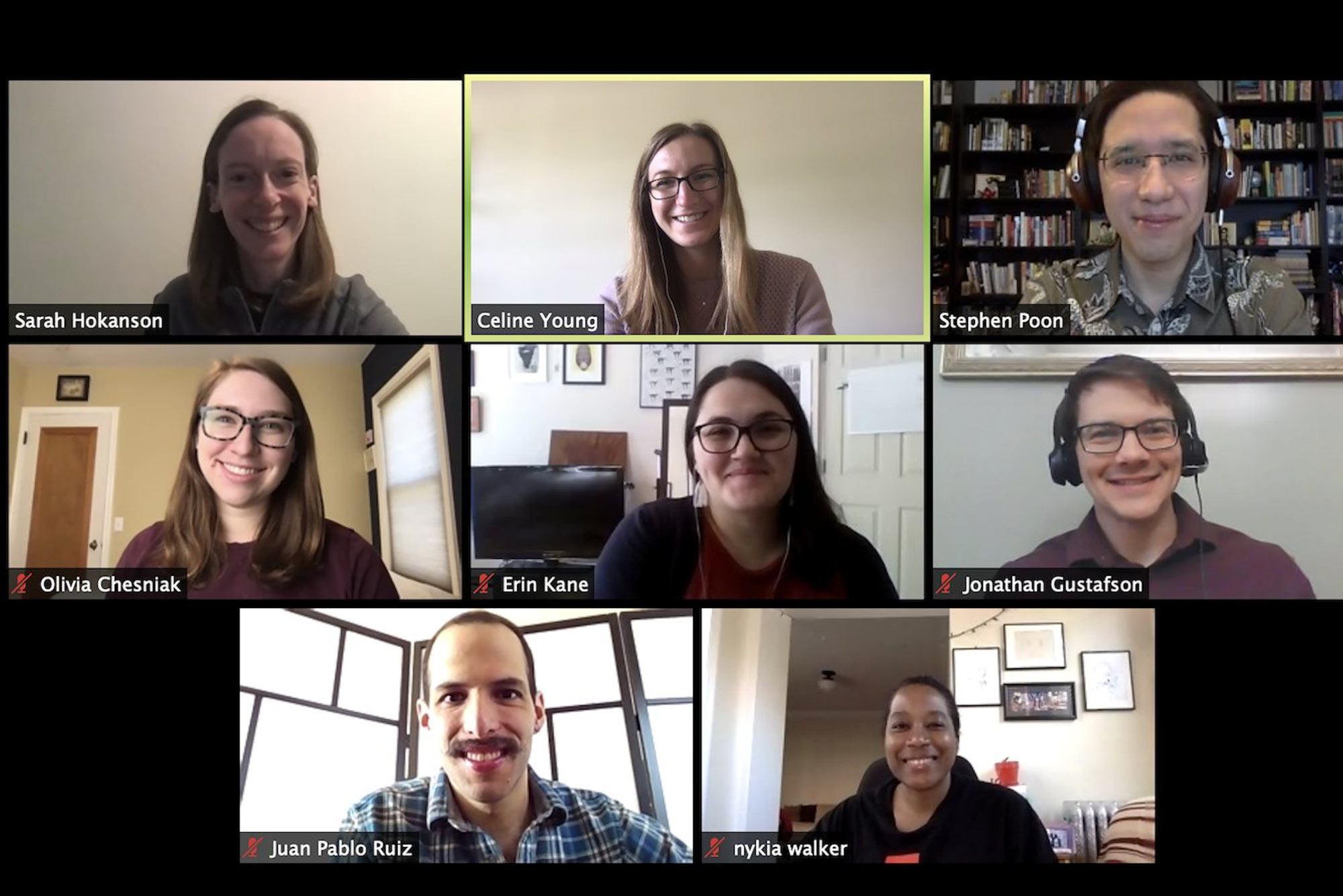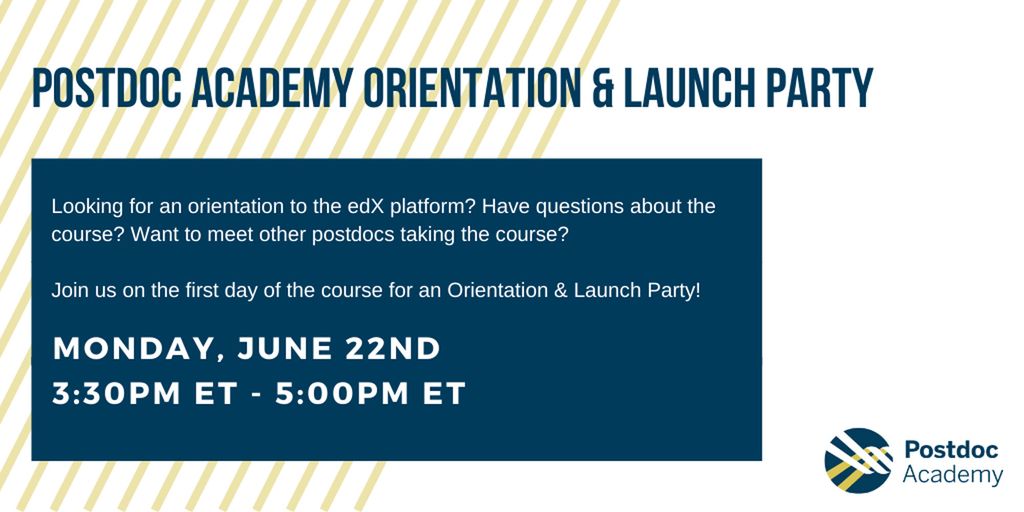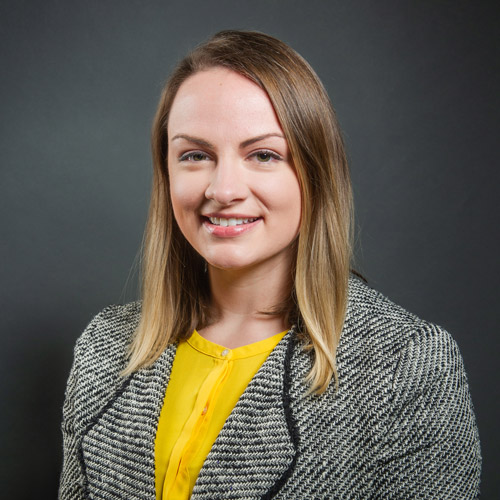Postdoc Academy Launches Remote Professional Development Course

Postdoc Academy instructors got together over Zoom to refresh course offerings in light of the ongoing coronavirus pandemic and recent worldwide protests against anti-Black racism. Photo courtesy of Postdoc Academy
Postdoc Academy Launches Remote Professional Development Course
Flexible course offerings, hosted online through edX, are built to help postdocs and graduate researchers advance their careers
For postdoctoral and graduate researchers who dreamt of getting ahead in the lab over the summer, the coronavirus pandemic has posed a daunting challenge to career progress. The Postdoc Academy, a free professional development course offered to researchers around the world through edX, is an opportunity for early-career researchers to keep moving toward their goals.
“This is an opportunity for early-career researchers to capitalize on downtime in the lab [caused by the pandemic],” says Sarah Chobot Hokanson, assistant provost for professional development and postdoctoral affairs at Boston University and principal investigator of the program’s development, which was funded through the National Institutes of Health (NIH).
The six-week online course—developed in recent years by collaborators at BU, Northwestern University, Michigan State University, and the University of Wisconsin–Madison—was designed specifically with postdocs in mind, but covers many topics relevant to graduate researchers as well, focusing on finding success, building an actionable career plan, developing resilience, and working effectively in an intercultural environment. The Postdoc Academy course also fulfills many of the requirements for NIH T32 grants, which support groups of pre- and postdoctoral fellows, including trainees in basic, clinical, and behavioral research.
It’s a way of making connections between a large global community of researchers.
Although its remote learning nature is especially appropriate given the workforce’s shift online since coronavirus spread across the world, it was designed from the get-go to fit around the hectic schedules of postdocs. Flexibility is a core aspect of the Postdoc Academy, says Hokanson, who graduated from BU’s College of Arts & Sciences in 2005 before going on to earn a doctoral degree in biochemistry and molecular biophysics from the University Of Pennsylvania School Of Medicine.
“Researchers have a lot of remote work time right now, why not use it to think about their career planning?” she says. Although BU is phasing back on-campus research activities, no more than a third of lab personnel can be on campus at any one time. Many other universities around the US and the world are following similarly stringent research reopening plans.
“For those that have research ramping back up in the lab, they can still fit in the weekly modules on their own schedule,” Hokanson says. “The course doesn’t meet on a specific day or on a specific time, unless they’ve elected to participate in a virtual learning community.”
The virtual learning communities gather learners together via Zoom in small online cohorts to experience the course offerings in a group setting. Hokanson says this experience—and the networking it allows postdocs to do with peers from around the world—provides Postdoc Academy students with a digital space to foster conversations about their experiences in the workforce.
Last session, the Postdoc Academy’s inaugural run earlier this spring, attracted learners from 51 different countries. Eighty percent of participants were postdocs. The next session of the virtual learning communities kicks off on June 22, 2020, which is the last day to sign up for an online cohort. Individual learners can still register at any time.
“We have discussion threads built into the course content,” Hokanson says, encouraging conversation between peers. Participants also get to know each other through individual introduction videos. “We ask everyone to submit an introduction video, to introduce themselves as humans and bring their whole selves into the learning space,” she says. “It’s a way of making connections between a large global community of researchers.”
Course participants also have opportunities to interact with learning modules anonymously. “We have some sensitive reflection prompts, and it was important for us to provide learners with anonymous ways of sharing their experiences,” Hokanson says.

The Postdoc Academy content has been refreshed to reflect the stressors and realities of what’s happening in the world in real time, Hokanson says, referencing the ongoing coronavirus pandemic and the worldwide protests against anti-Black racism.
“One of our modules focuses directly on reflecting on identity in the workplace, and so we are working to make sure it’s contextualized to be appropriate to the here and now,” she says.
“These are extraordinarily difficult times—from the systemic racism and anti-Blackness within our society to the proclamations that limit international citizens from entering or remaining in the US to the long-lasting impacts of COVID-19,” says Celine Young of BU’s Professional Development & Postdoctoral Affairs team, who is program director of the Postdoc Academy. Young earned her doctorate degree in biochemistry and molecular biology at Saint Louis University School of Medicine.
So far, there are already more than 1,250 postdocs and graduate researchers enrolled for the summer session. An online orientation and launch party is scheduled for 3:30 to 5 pm on Monday, June 22. Participants should enroll by the end of the day, June 22, to be included in an online learning community.

Comments & Discussion
Boston University moderates comments to facilitate an informed, substantive, civil conversation. Abusive, profane, self-promotional, misleading, incoherent or off-topic comments will be rejected. Moderators are staffed during regular business hours (EST) and can only accept comments written in English. Statistics or facts must include a citation or a link to the citation.